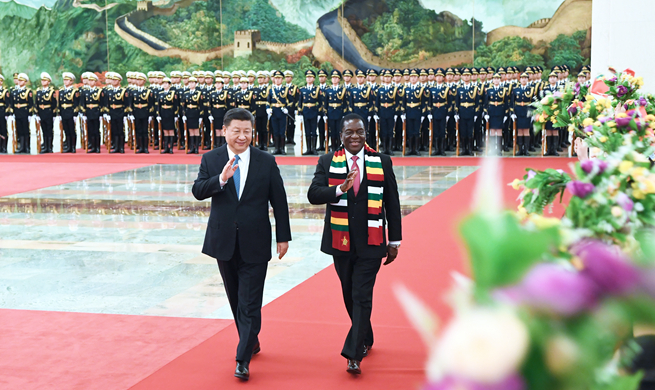WASHINGTON, April 4 (Xinhua) -- American and Chinese scientists have found that inhibiting a protein involved in the accumulation of immune cells could enhance the killing of bacteria and reduces lung damage in mice with bacterial pneumonia.
The study, published on Wednesday in the journal Science Translational Medicine, hinted at a new mechanism underlying how immune cells respond to lung infections, and may lead to new treatments for patients with pneumonia.
Luo Hongbo, associate professor of pathology at the Harvard Medical School, told Xinhua that a protein regulating the immune response to infections called IP6K-1 could improve clearance of bacteria while preventing tissue damage from excessive immune system activity.
Harvard researchers and their Chinese colleagues from the Chinese Academy of Medical Sciences in Tianjin developed a new treatment for bacterial pneumonia, which can be caused by bacteria that have become resistant to several common antibiotics.
They induced lung infections with Escherichia coli bacteria in both wild type mice and mice deficient in IP6K1.
It has shown that the immune systems of the IP6K1-deficient mice cleared the E. coli infections more effectively compared to the wild type mice, a finding that was replicated in mice infected with Staphylococcus aureus that may cause life-threatening pneumonia.
Also, treating infected wild type mice with a drug that inhibits IP6K1 alleviated lung damage triggered by inflammation and infection.
The study may lead to effective treatments for bacterial pneumonia that boost the body's own defenses while reducing potentially harmful "friendly fire" from the immune system, Luo said.



















